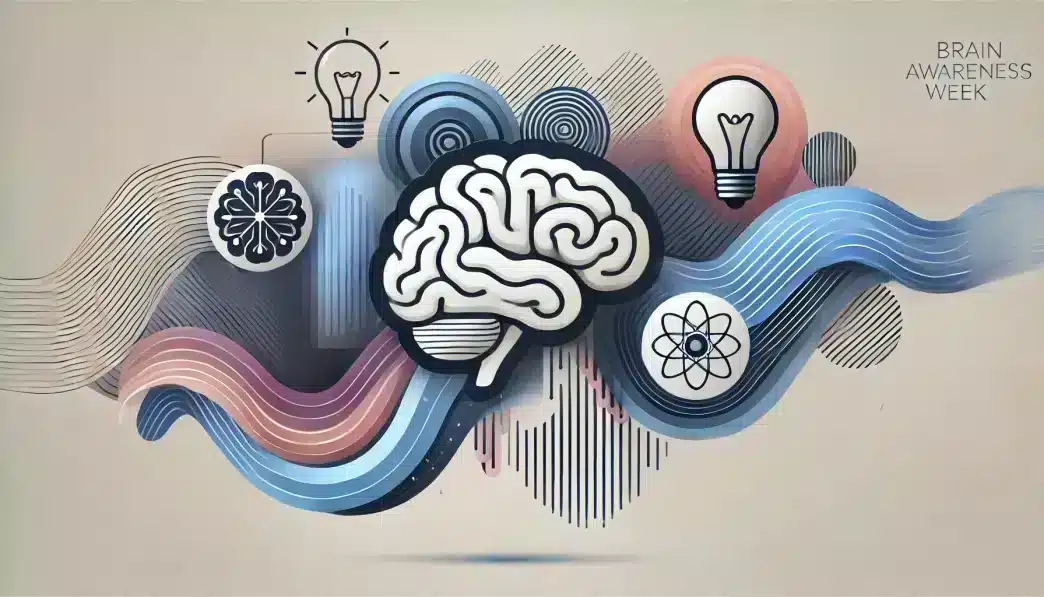What is Brain Awareness Week?
Brain Awareness Week (BAW) is a global campaign held annually during the second or third week of March. The week promotes public understanding of brain health and neuroscience, highlighting the importance of research and education in this field. Organized by the Dana Foundation, it brings together institutions worldwide to celebrate the brain’s complexities and encourage healthy practices for mental well-being.
History and Origin
Brain Awareness Week was established in 1996 by the Dana Alliance for Brain Initiatives. The goal was to increase public engagement with neuroscience and foster curiosity about the brain’s complexity. Over time, the initiative has grown into a global effort with events in over 100 countries, including educational workshops, public lectures, and hands-on activities.
The week focuses on bridging the gap between scientists and the general public, emphasizing the importance of understanding the brain to improve mental health, treat neurological disorders, and enhance overall well-being.
Who Observes Brain Awareness Week?
- Schools and Universities: Host neuroscience workshops, brain-themed experiments, and lectures to educate students.
- Healthcare Providers: Offer resources on brain health, early detection of neurological conditions, and preventive measures.
- Research Institutions: Open labs to the public or present findings to showcase advancements in brain science.
- Nonprofits and Advocacy Groups: Raise awareness about brain-related conditions like Alzheimer’s, stroke, or mental health disorders.
- Families and Individuals: Participate in activities to learn how to protect and nurture brain health.
Themes and Slogans
Brain Awareness Week often adopts themes that highlight specific aspects of neuroscience. Past themes have included “Unlocking the Mysteries of the Brain” and “The Power of Prevention.” These themes focus on education, research, and practical ways to maintain brain health.
Colors, Symbols, and Patterns
Colors
- Blue: Represents calmness and mental clarity.
- White: Symbolizes knowledge and discovery.
- Gray: Reflects the physical appearance of the brain and its intricate structure.
Symbols
- Brain Iconography: Depicts the complexity of neural networks.
- Neuron Diagrams: Represent brain function and connectivity.
- Lightbulb: Symbolizes ideas, learning, and innovation.
Patterns
- Neural Webs: Reflect the brain’s complex network of connections.
- Circular Motifs: Represent unity and the shared goal of improving brain health.
- Waves: Symbolize brain activity and electrical signals.
How to Celebrate Brain Awareness Week
- Attend Events: Join local lectures, workshops, or brain health fairs organized by universities or medical institutions.
- Host Educational Activities: Organize brain-themed games, puzzles, or science experiments at schools or community centers.
- Learn and Share: Explore brain health resources and share tips on social media using Brain Awareness Week hashtags.
- Support Research: Donate to organizations funding neuroscience research or participate in local initiatives.
- Adopt Healthy Habits: Start practices that promote brain health, such as regular exercise, a balanced diet, and mental stimulation.
Most Used Hashtags
- #BrainAwarenessWeek
- #BrainHealth
- #Neuroscience
- #HealthyBrain
- #MindMatters
Why is Brain Awareness Week Important?
Brain Awareness Week emphasizes the brain’s central role in every aspect of life. It raises awareness about neurological disorders and encourages preventive care to protect brain health. By fostering curiosity about neuroscience, the week bridges the gap between experts and the public, inspiring interest in research that could lead to breakthroughs in treating brain-related conditions.
The week also encourages people to adopt lifestyle changes that support brain health, contributing to overall well-being. It highlights the importance of early detection and education, ensuring that the brain receives the attention and care it deserves.
Features
- Health
- Mental Health
